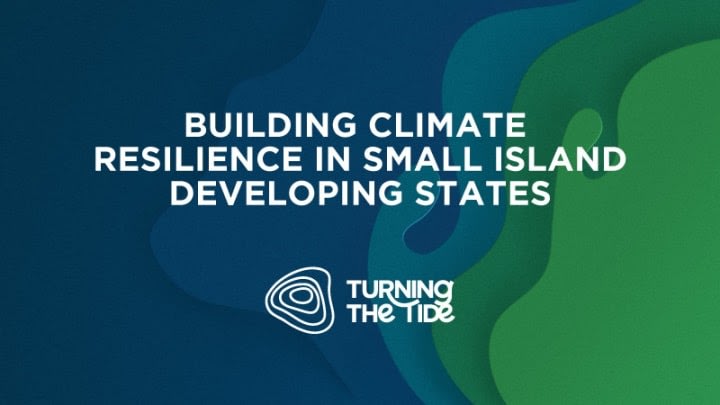As the United Nations General Assembly high-level meetings and Climate Week NYC kicked off Monday, Devex and CommonSensing hosted a virtual event on how to build community resilience through climate justice.
Opening the event, Ambassador Nazhat Shameem Khan — permanent representative of Fiji to the U.N. in Geneva — emphasized that climate change affects people to very different degrees.
She quoted a former U.S. Supreme Court justice, saying that “there is no greater inequality than the equal treatment of unequals” to illustrate that effective climate change policy will have to take into account the fact that climate change has the ability to affect people disproportionately and in different ways.
“A successful climate policy will take all of that into account and integrate into its national framework the lived experiences of people,” she said.
Integrating traditional knowledge and community engagement
A panel of experts, including representatives from the Pacific region, highlighted the importance of integrating traditional knowledge to build community resilience to disasters.
"When we try to balance the science and traditional knowledge and bring those two together, we don't do that quite as well as we should,” said Coral Pasisi, senior adviser to the director-general at the Pacific Community. “I don't think we give the same level of importance and formality to traditional knowledge and cultural practice … as we do to science. And in reality, the two complement each other very well.”
“A successful climate policy will … integrate into its national framework the lived experiences of people.”
— Ambassador Nazhat Shameem Khan, permanent representative of Fiji to the U.N. in GenevaYet community engagement remains relatively low and superficial. “We often talk about climate justice. ... But in practice, when we actually really sit down and talk about policies and commitments, we hardly see this happening,” said Komal Narayan, a climate activist and volunteer with the Fiji-based Alliance for Future Generations.
Narayan also added that biological loss is cultural loss — something that is often overlooked because it is not an economic loss and cannot be quantified.
Financing for mitigation, not just response
Building community resilience through climate justice
Watch the virtual discussion in full.
Pasisi pointed out the urgent need for more mitigation efforts to help decrease the impact of climate change-related disasters — such as extreme weather events and rising sea levels — on local communities. “We are going to suffer a lot of loss and damage,” she said. “So they [climate finance institutions and other actors] have to act quickly to reduce that level of ... loss.”
For Pasisi, short-term investments are “a real killer,” whereby funding starts and stops and nothing is really sustainable. Instead, she noted the need for more long-term, sustainable financial arrangements that are matched with the absorptive capacity of communities and countries.
“I would rather have $100,000 that I can spend over a period of time and that’s flexible in use for community needs than $1 million that’s locked into a three-year time period with deliverables … that are just impossible to keep up with because we have such changing capacities in communities in small countries,” she said.
Watch the event to learn more about how to build community resilience to climate change through climate justice, and join the conversation online using the hashtags #TurningTheTide and #DevexEvent.
Visit the Turning the Tide series for more coverage on climate change, resilience building, and innovative solutions in small island developing states. You can join the conversation using the hashtag #TurningtheTide.
Share your ideas on how can we better engage with communities to improve climate resilience, here.


